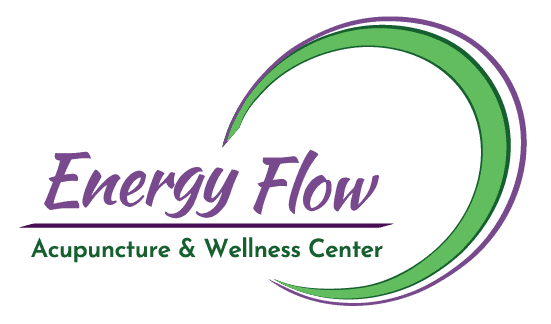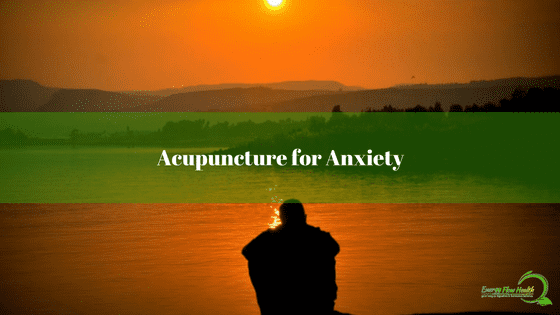-
 Energy Flow Acupuncture & Wellness Center24W500 Maple Ave Suite 212
Energy Flow Acupuncture & Wellness Center24W500 Maple Ave Suite 212
Naperville, IL 60540630-335-1069 Clinic Hours
By Appointment Only
Blog
Acupuncture
Positive Side Effects of Acupuncture
(Naperville Acupuncture)
Acupuncture results – what can you expect?
Many of my patients are pleasantly surprised when they start to see results from acupuncture. For one, they often see benefits after the first or second visit. And for two, some of the benefits they get aren’t the ones they originally came in for. What strange effects am I referring to you may ask?
Examples of Acupuncture Benefits
Here’s a common example. Someone comes in for irritable bowel syndrome. Or neck pain. You name it. When I see them after the first or second visit – they report being more relaxed and having slept really well after their treatment. These are people that also had come originally with stress or sleep difficulties.
Another example is someone who comes in for fertility and they report their constipation improving or disappearing. Yet another example is someone coming in for constipation and not only does constipation improve, but the headaches they’d get several times a week have been gone for weeks!
Basically, people seek acupuncture usually for the one or two symptoms that concern them most or interfere with their day to day functioning, but rarely is it just a single problem that is plaguing them. Too often people are dealing with so many issues that may just become a part of their fabric, and they’ve adapted to the pain, discomfort, fatigue, etc., and don’t consider that all those signs are abnormal and can be helped.
And I know I say this all the time but, yet again, that is another thing I just LOVE about my job!! I am here to take into account ALL your signs and symptoms, all your troubles if you will, and to make sense of what is causing ALL of it. Usually it’s all interrelated, much to the astonishment of my patients when I tell them their rib pain and neck pain are one in the same, or that the frequent urination is related to the knee soreness, or that the bloating and gas are related to the headaches, or that their period pain and anxiety have the same source.
Learn more about acupuncture here. Here is one of my favorite acupuncture resources.
If you haven’t experienced the magic of acupuncture yet, or if you have a friend or relative that you think can benefit from a few good side effects, please give me a call at 630-335-1069 directly to get started!
Acupuncture for Anxiety

(Naperville Acupuncture)
Acupuncture for Anxiety. Explore your treatment options.
What is the most common mental illness in the US? If you answered anxiety, you got it. 18% of the country’s adult population suffers from an anxiety disorder.
Conventional Anxiety Treatment
The major treatment for anxiety and depression in the US today is SSRIs or SNRIs, which are two classes of drugs that affect how much of two neurotransmitters, serotonin and norepinephrine, are absorbed vs available. These neurotransmitters affect mood. So the theory is to block how much of them get absorbed so more is available and more mood regulation will result
What’s the catch to using these drugs? Well, these drugs can have side effects. And they are often prescribed long-term to indefinitely.
How Is anxiety viewed in Chinese Medicine?

We classify anxiety in terms of Chinese Medicine as a type of hyperactivity affecting the Heart. I capitalize this word to indicate that it is a representation of functions in the Chinese Medical theory that is different from the actual organ in your chest. The Heart in CM overlaps much with our idea of the mind. It governs sleep and mood and our outlook. Anxiety therefore is an imbalance that affects the Heart, yet we seek to find the underlying cause for why this imbalance exists by taking into account your tongue analysis, pulse analysis, abdominal palpatory analysis, and other signs and symptoms.
Natural Drug-Free Treatment
What if you could reduce or end your anxiety without drugs? Did you know that Chinese Medicine heals the body and the mind? To an acupuncturist, the two are not separate but just like you are one whole person, our system of medicine takes all symptoms and signs into account in order to arrive at an effective treatment plan.
Anxiety is actually a sign of imbalance in the body, so when seeking natural treatment an acupuncturist applies holistic techniques to ease your mind and body out of disorder.
In addition to addressing your unique imbalances with acupuncture, we also sometimes incorporate natural herbal and nutritional remedies to support the body’s own ability to heal. Herbal remedies include things like roots, leaves, seeds that are cooked or processed to make their essences available to the body for absorption, and nutritional supplements include things like vitamins or minerals or amino acids that we may be deficient in or that in certain doses exert a therapeutic effect.
If you are interested in reading more about accupuncture here my two favorite resources: Medical News Today and Acupuncture Today.
I’ve personally had great success in treating anxiety in my clinic, and I enjoy seeing people get back to how they felt before anxiety took over. Here are my Services I provide in my clinic. Contact me today to schedule your visit.
How Does Acupuncture Work?
(Naperville Acupuncture)
Acupuncture is a treatment therapy that addresses a wide variety of health concerns and diseases. Originating in China well over 2,000 years ago, practitioners around the world provide healing for anything from joint and body pain to nausea to chronic conditions. It was first introduced to the US in the 1970’s, and has been growing ever since as more and more people experience the benefits and spread the word.
Here we’ll answer the most common questions about acupuncture.
What is acupuncture?
Acupuncture is the insertion of very thin sterile disposable needles at specific points on the body, which are then typically retained for anywhere from 15 minutes to an hour. Styles of practice vary widely since it’s been around for thousands of years. Before inserting the needles, the practitioner gathers information from asking questions, looking at the patient’s tongue, and analyzing the pulses at the wrists. Some practitioners also gather information from touching, or palpating, the abdomen. From all this information a diagnosis and treatment plan are formulated.
Does acupuncture hurt?
“I’m afraid of needles” – this is what we acupuncturists hear all the time from people who’ve never experienced acupuncture. They’re thinking of syringes that are inserted into their veins for blood draws, or to administer vaccines. But these are NOT syringes. In fact, several acupuncture needles easily fit inside a syringe, that is how thin they are. Also, we are NOT inserting the needles into your blood vessels. Yet, it is true the needle is inserted below the skin, so doesn’t this hurt? No, usually there’s no sensation, but sometimes the patient feels a sensation that we can Qi – and this is sometimes desirable at certain points for more effective results. The overall feeling during and after acupuncture is relaxation. Just ask someone who’s had it!
What does acupuncture do?
The point of acupuncture (pun intended 😉 ) is to release blockages in the energy channels that run throughout the body. These channels are very similar to the blood vessels and nerves except instead of carrying blood or nerve signals, they carry a special force within the body called Qi. Qi translates roughly to Life Force, or Vital Energy. It is what makes us alive, and when it is balanced it allows and creates health in the body. Things such as poor diet, emotional stress, physical stress, environmental stressors, etc. all create imbalances or blockages in the smooth flow of Qi in the channels. Acupuncture is using a small tool to access the energy in these channels, which are invisible to modern day imaging and to the eye, and to release blockages and return the body closer to homeostasis.
What is acupuncture good for?
According the the World Health Organization, acupuncture benefits a list of over 100 (107 at my count from their official statement) conditions. So the better question is what isn’t it good for?!
Here’s a video I created a few years ago that explains some analogies to help you understand how acupuncture works.
4 tips for choosing the acupuncturist that’s right for you
Whether you are looking for help with IBS, Neck Pain, Depression, Insomnia, Headaches, Diabetes or many other health problems, acupuncture can be a smart choice for efficacy and economics. Maybe you are like me, and when presented with too many choices, tend to lock up and make no choice at all. Stuck in indecision but desperately in need of help or resolution. Maybe you have a strong feeling that acupuncture can really set you right, but when you start looking for who to book an appointment with, you feel unsure?
I totally get that. It has happened to me. Let me give you some tips that will hopefully give you the reassurance that you won’t end up with a bad experience
Credentials Count!
-
Make sure that whoever you choose is licensed by your state to practice acupuncture. Several types of practitioners can legally practice, but each will have different training. Here’s a run down of the most common:
- Licensed Acupuncturist: training is a minimum of a 2-year program. Some acupuncturists undergo additional training for herbs. You can verify licensure by visiting your state’s professional regulation department website. For Illinois, it’s http://www.idfpr.com/licenselookup/licenselookup.asp
- Chiropractor: no training required
- Medical Doctors, Osteopaths (DO), and Dentists: no training required.
Specialties or Focus narrow the field
- By looking into the practitioner’s website or calling their office, you can ascertain if they may have more experience related to your main complaint.
- Like in conventional medicine where you go the the GI doctor, the gynecologist, etc., acupuncturists may have more knowledge, experience, or expertise in a certain range of conditions but will be able to successfully treat a much wider range in practice. For example, my specialties are digestion and menstruation/female health but I treat pain, mental health issues, and other conditions just as well.
Location and Hours
- Convenience should not be underestimated. You need to be able to keep with your treatment plan.
Rapport
- When you call to inquire, ask if they offer a complimentary phone or in person consultation to get a feel for the practitioner’s personality and mannerisms.
- By finding the practitioner that you feel comfortable opening up to, and who you feel has your best interests at heart, you will be best positioned to get the most out of the relationship. Healing is more than showing up for your treatments. It’s a partnership in your journey to health!
Listen to your heart
Obviously other factors can influence your choice, but giving these good consideration should help you feel more confident in choosing the right acupuncturist! Don’t hesitate to ask a few questions such as how long they’ve been practicing, what style they practice, or why they do this line of work! Bottom line is with all the choices we are faced with every day, let this one especially be guided by your heart.
Poignant lessons from the bible of acupuncture
I love this quote from the first chapter of the classical foundational text of acupuncture titled The Divine Pivot (Ling Shu):
“Whether meeting it or following it, by means of one’s attention, one harmonises it.
Those who understand the way of the dynamic, will not impede it and thus it manifests.”
We – acupuncturists – must focus our attention on “it” – the qi. We must get out of its way but by learning where it wants to go and where it is, we can understand it, and facilitate a state of balance – harmony.
Here’s another profound quote from The Divine Pivot that is loud and clear:
“ The (unskilled practitioner) attends to the form (aka physical). The superior (practitioner) attends to the spirit (aka nonphysical).”
What do you gather from this? To me, it says, an acupuncturist doesn’t just stick a needle in your boo-boo – we are assessing and nuancing the unseen energetics of the body. That’s why people don’t come to me to fix a dislocated shoulder or a torn meniscus. They come to me to assist their body in regaining harmony and balance to enhance their own healing abilities. We all are born with mechanisms within us to continually heal ourselves. Every second of every day our body is rebuilding and repairing. Sometimes we sustain an injury – whether due to physical trauma or inflammatory response to our diet or environment or stress hormone overload – that finally creates an imbalance upon imbalance that makes it hard for the body to find its own homeostatic rhythm again. We often don’t see symptoms until the root cause has been actively damaging us for years.
The cool thing about Traditional East Asian Medicine (TEAM for short) is that we have ways to measure the state of our Qi that don’t rely on how high the pain level is or our own mental perception or even the physical manifestations. We can ask the body in it’s own language – what’s wrong? where do you need me to come in and help? That is why this medicine has endured and why it is so effective. Yet it is the burden of the practitioner to develop the skills to do this best. They don’t call it a practice for nothing! My teachers from each of my courses is a practitioner in practice – they are always practicing. All of the great practitioners and teachers are always students of this medicine. So I thank you for coming with me on this journey to discover acupuncture and it’s wonder and wisdom.

